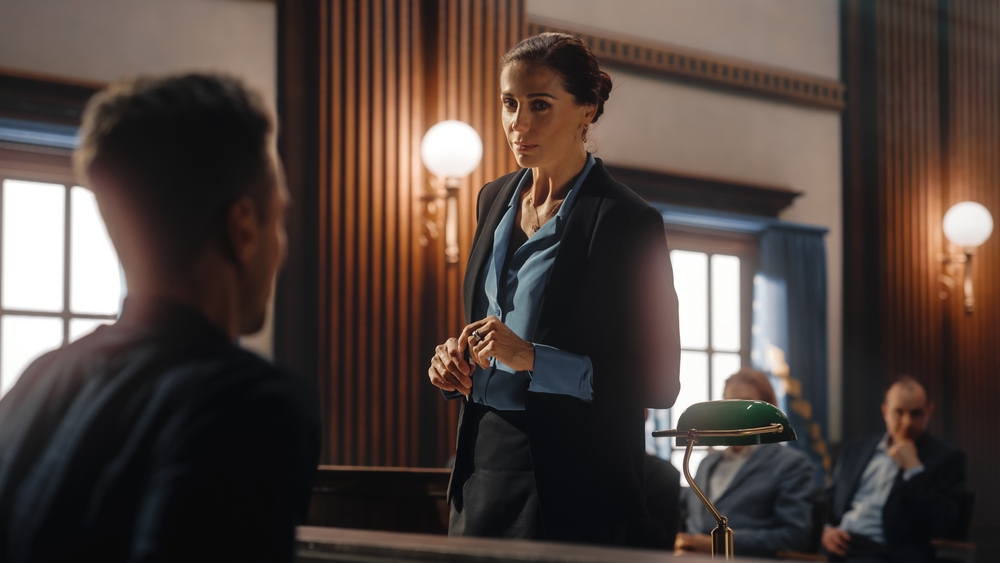Get Legal Help
Finding a skilled, compassionate and empathetic attorney with a proven track record is a crucial step if you’re a survivor seeking justice. We can match you with the highly-experienced and compassionate legal representation you need to focus on your path toward healing and recovery. Contact Us when you feel ready.
Additionally, use the following guide to educate yourself on questions to ask a prospective attorney and more.
Identifying Specialized Attorneys
Look for Experience and Expertise
- Sexual Abuse or Assault Specialty: Search for attorneys who specifically handle sexual abuse or assault cases. These lawyers are familiar with the unique challenges of such cases, including navigating the criminal justice system, handling sensitive evidence, and understanding the psychological impact on victims.
- Track Record of Success: Consider attorneys with a proven track record of successfully representing sexual abuse victims. Review their case outcomes, client testimonials, and any published articles or case studies they have contributed to.
- Membership in Professional Organizations: Look for attorneys who are members of professional organizations focused on sexual abuse or personal injury law, such as the National Crime Victim Bar Association (NCVBA) or the American Association for Justice (AAJ).
Where to Search
- Online Legal Directories: Use online legal directories like Avvo, Martindale-Hubbell, and FindLaw to search for attorneys specializing in sexual abuse cases. These platforms often include reviews, ratings, and detailed profiles.
- State Bar Association Referrals: Contact your state’s bar association for a referral to attorneys who specialize in sexual abuse or personal injury law. Many bar associations have referral services that connect you with qualified lawyers based on your specific needs.
Questions to Ask When Choosing an Attorney
Initial Consultation
- Experience with Similar Cases: Ask about the attorney’s experience with cases similar to yours, including their success rate and strategies used.
- Legal Strategy and Approach: Discuss how the attorney plans to approach your case. Will they seek a settlement or pursue litigation? How will they gather evidence and handle sensitive information?
- Fee Structure: Understand the attorney’s fee structure. Many attorneys in sexual abuse cases work on a contingency basis, meaning they only get paid if you win your case. Ask about any additional costs, such as court fees or expert witness expenses.
- Comfort and Trust: It’s important to feel comfortable with your attorney, as you’ll be sharing deeply personal information. Trust your instincts during the consultation; choose someone who listens, respects your boundaries, and communicates clearly.
Pro-bono and Low-Cost Legal Options
Pro-Bono Legal Services
- Legal Aid Societies: Legal aid organizations offer free legal services to low-income individuals. They may provide representation or connect you with volunteer attorneys. Examples include Legal Services Corporation and local legal aid offices in your area.
- Nonprofit Legal Organizations: Some nonprofits, such as Victim Rights Law Center and Public Justice, offer pro-bono legal assistance to victims of sexual abuse. These organizations often have attorneys who specialize in sexual violence cases.
- Law School Clinics: Many law schools operate legal clinics where law students, under the supervision of experienced attorneys, provide free legal services to the community. These clinics can be a valuable resource for those unable to afford private attorneys.
Sliding Scale Fees
- Nonprofit Legal Centers: Some legal centers offer services on a sliding scale based on income. This can make legal representation more affordable for those who do not qualify for pro-bono services but still have limited financial resources.
- Private Attorneys with Sliding Scale Options: Some private attorneys offer sliding scale fees for clients based on their financial situation. Discuss this option during your initial consultation if affordability is a concern.
Additional Resources for Legal Support
Victim Compensation Programs
- State Victim Compensation Programs: Many states have victim compensation programs that can help cover legal expenses, medical costs, and other financial burdens resulting from the assault. These programs often work in conjunction with legal services to support victims.
Advocacy Groups
- National Crime Victim Bar Association (NCVBA): This association provides referrals to attorneys who specialize in representing crime victims, including those of sexual abuse. They also offer resources and support to help you navigate the legal process.
- Local Sexual Assault Advocacy Centers: Many local advocacy centers have partnerships with attorneys who specialize in sexual abuse cases. They can provide referrals and even have legal advocates who can accompany you to court or meetings.
Whether you choose to work with a private attorney or seek pro-bono services, select someone who understands the complexities of sexual abuse cases and is committed to advocating on your behalf. Remember that legal assistance is available, and you don’t have to face this process alone.
